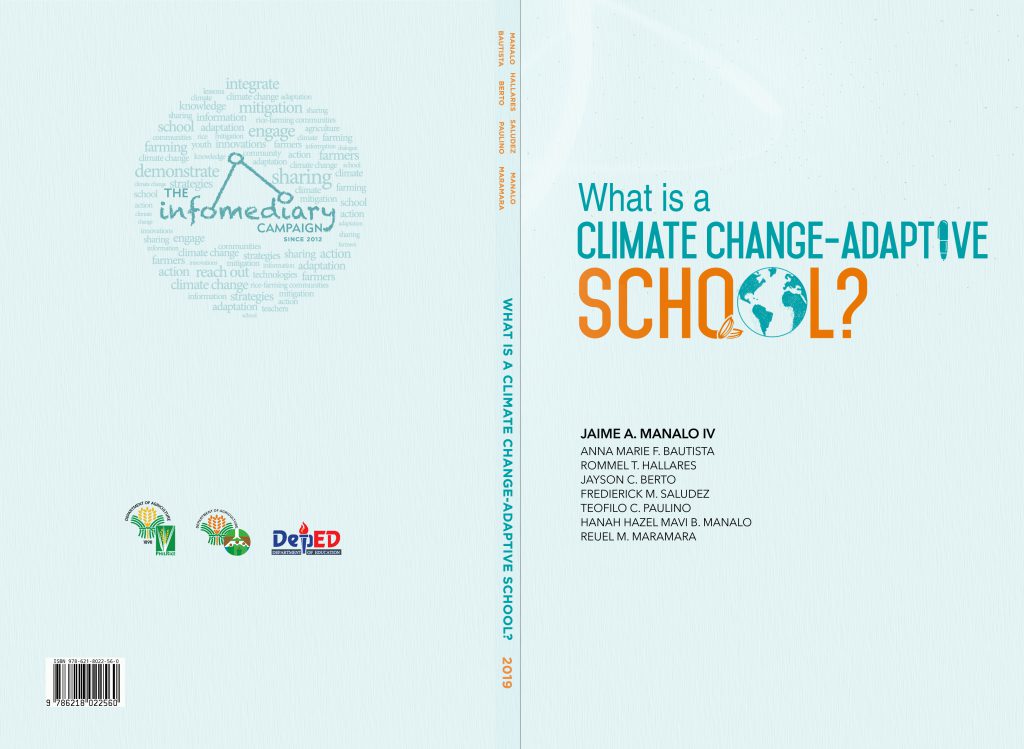
Schools as sources of knowledge and information on climate change and rice production? Why not! With the newly-released book, What is a climate change-adaptive school?, PhilRice’s Infomediary Campaign team shares how twelve high schools in the Philippines have risen to the challenge of becoming the nuclei of rice science and information in their own rural rice-farming communities.
What’s inside the book?
This 124-page material presents the findings of a collaborative project between PhilRice and the Department of Education funded by DA-Bureau of Agricultural Research.
It presents 12 case studies detailing the experiences of the campaign’s participating schools. Each site tells a different story: development context or the agriculture and climate change situation in their area; interventions or the components implemented by the school; technologies used by each school as they implement the components; community-related initiatives to reach out to farmers in their community; and immediate unintended outcomes emerging from the project.
The case studies aim to inspire readers to mix and match strategies implemented by the participating schools. Or readers may duplicate strategies implemented in a particular school.
What is a climate change-adaptive school? is the third book produced by the Infomediary Campaign team. Previous published books include Youth and agriculture: The Infomediary Campaign in the Philippines and Communicating climate change in the rice sector.
Grab your free copy of this book from this link.




